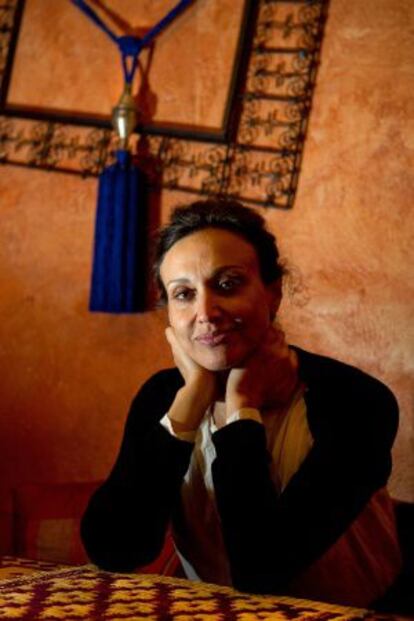“There are people who still look down on Morocco”
Fundación Tanja founder Rosa Cañadas is working to bring Spain closer to its African neighbor

As a child, Rosa Cañadas was always surprised at the questions people asked her about Morocco each summer, when she went back to Andalusia for the holidays.
"I don't know why they thought that we lived in prehistoric times. And back then, Tangier was a modern city, especially compared with some Andalusian villages," says Cañadas, whose father hailed from Granada and her mother from Cádiz. Her parents moved to Tangier, where she was born, and where her father and brother remain. She herself moved to Paris when she was 18 to go to college.
These days Cañadas, who holds a PhD in financial markets, lives in Barcelona with her husband and daughter, where she created a foundation to act as a bridge between Spain and Morocco.
Fundación Tanja, she explains, is a think tank that addresses current issues of interest to both countries and which has high-profile politicians and businesspeople in its ranks. The honorary committee includes former minister Josep Piqué; former Catalan premier Jordi Pujol; former Israeli foreign minister Shlomo Ben Ami; and André Azoulay, adviser to King Mohammed VI of Morocco.
"There are people who still look down on Morocco," she notes. And there are also people in Morocco who have a buildup of bad impressions about Spain.
"Morocco has evolved a lot. Does it still have a long road ahead? Yes, it does, but it will cover it. It needs time," says Cañadas. Morocco, she adds, is about more than just veiled women or political conflicts.
"There are entrepreneurs there, incredibly educated people, business opportunities and spectacular landscapes. And a woman who wears a veil does not necessarily have to be a subjugated woman," she claims. "In many cases, it's just a matter of tradition."
Although her foundation does not focus on political issues, Cañadas is aware that the Sahara dispute is a source of conflict, and that the rise to power of the Islamist party Justice and Development is a matter of concern on the other side of the Atlantic.
"In Germany, Angela Merkel's party is Christian Democratic. So is Josep Antoni Duran Lleida's in Catalonia. And Spain does not consider them dangerous because of that. The Islamist party rules [in Morocco], but in coalition with three other parties," she says. "I closely follow Morocco's political evolution, but I also think that we need to wait and be able to appreciate the progress being made: clean elections, changes to the Constitution... If after everything that has happened in Arab countries last year Morocco has remained stable, that should tell us a lot about the strength of its reforms. Citizens know that steps are being taken," she adds.







































